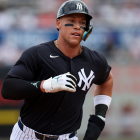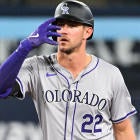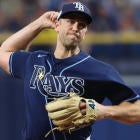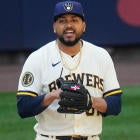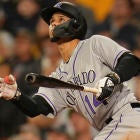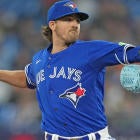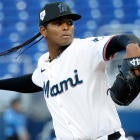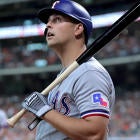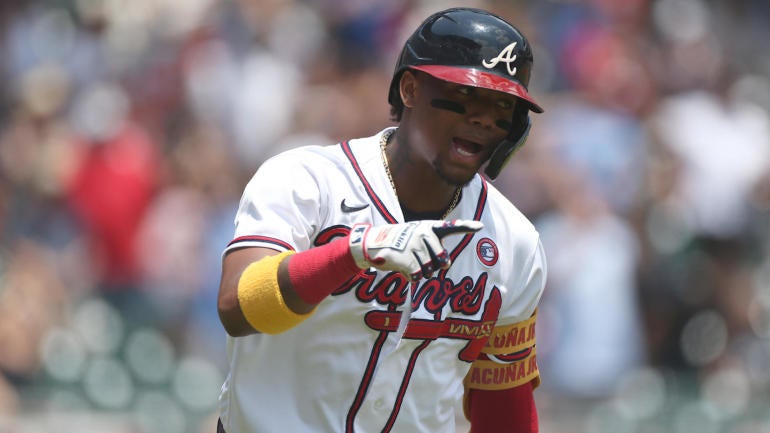
Gradually, then suddenly. That's how the new CBA came together, ensuring there will be baseball in 2022 and beyond. It concluded Thursday with the the players voting to accept the owners' latest proposal, and it concluded in time for this all eventually to feel like a bad dream.
What I mean by that is we're still getting a full 162 games. For all the talk of canceled series, the league agreed to rearrange the schedule to fit everything in. Opening Day is now set for April 7, which isn't so out of line with the typical baseball calendar. Casual fans won't even know the difference.
But you're no casual fan, of course. You play Fantasy Baseball, and you're used to following certain rhythms. And it's probably not lost on you that April 7 is only four weeks away.
So what do you need to know to get your own league off the ground? What can you expect to happen and when? First, a quick rundown of some rule changes that likely won't have a huge impact on our game:
- Beginning in 2023, MLB has a 45-day window to implement rule changes without player approval. If you've heard talk of eliminating shifts or implementing pitch clocks and larger bases, that's where those fit in. We'll worry about them next year.
- Also beginning in 2023, teams will play fewer divisional games and face each of the other 29 teams at least once.
- Playoffs will expand to 12 teams. The top two teams in each league will get a bye, with the other four playing in a best-of-three wild card round.
- The top six draft picks will now be determined by a lottery system.
- Players can be optioned to minors a maximum of five times in a given season.
- Doubleheaders are back to normal (each game being nine innings).
- Extra innings are back to normal (no more free runner on second base).
- Draft pick forfeiture for free agents is suspended for now and will be eliminated entirely if the two sides can agree to an international draft by July 25.
Now, for the stuff that really matters ...
A deluge of news
Remember free agency? Yeah, the league hit the pause button at the start of December, before some of these top free agents had a chance to sign:
- Freddie Freeman, 1B
- Trevor Story, SS
- Carlos Correa, SS
- Nick Castellanos, OF
- Kenley Jansen, RP
- Kris Bryant, 3B/OF
- Kyle Schwarber, OF
- Clayton Kershaw, SP
- Carlos Rodon, SP
- Nelson Cruz, DH
- Jorge Soler, OF
- Michael Conforto, OF
- Eddie Rosario, OF
- Zack Greinke, SP
Those are the most pertinent for Fantasy Baseball purposes, but there are something like 200 unsigned free agents overall. And that's not even accounting for all the trade possibilities.
Bottom line is teams still have work to do, and they don't have much time to do it. The prevailing presumption is that the majority of these deals will happen within the first couple days, but they obviously aren't the sort that can be thrown together at a moment's notice.
Truth is we don't have much precedent for how it will play out. Quicker is better for a number of reasons. It would allow you to schedule your league's draft with confidence, yes, but it would also improve the chances of these players being ready for the start of the season. For any that take two weeks or longer to sign, I have my doubts, particularly in the case of the pitchers.
Speaking of which ...
Renewed concerns about pitcher health
The typical spring training timeline (six weeks or thereabouts) is for the sake of responsible pitcher buildup. Nobody comes out of the gate throwing six innings. Most start out going an inning or two and increase gradually from there, hopefully reaching the point where they can go six-plus by the time the season starts.
This year, they won't have that luxury. Players are expected to report Sunday. Games are expected to begin that same Thursday, only three weeks before Opening Day. How built up can we expect starting pitchers to be, and isn't there danger in accelerating their timetable?
Unlike with the free agents, we do have some precedent for how this will play out. It feels like we've all memory-holed it, but just two years ago, we saw the same hurried buildup to the start of the season, that time due to pandemic policies, and it ended up not being such a big deal.
By and large, pitchers built up to their typical workloads within a couple of turns, and I'll remind you the stakes for them doing so were much higher then. We were looking at only a 60-game season. If they took too long to build up, the investment would have been a total waste. A couple turns in a 162-game season is a relative drop in the bucket.
Granted, there may be more long-term consequences over 162 games rather than 60, but identifying which pitchers will get hurt as a result isn't something you can expect anyone to do.
Bottom line is I don't think it changes the way you put your team together. It may or may not impact the way you set your lineup for the first couple weeks, but it's one of those situations where any correction risks overcorrection.
A universal DH
The DH is coming to the NL full-time. It was expected but is now official. I've written about the players most likely impacted, which is of course subject to change as free agency plays out. (The quintessential DH, Nelson Cruz, remains unsigned, after all.) For now, though, I think the work can speak for itself.
There's also the secondary matter of NL pitchers potentially seeing their numbers suffer with an actual hitter now in that No. 9 spot, but the effect will be felt more on a macro level than a micro level, I suspect. As with the shortened spring training, we have some experience with this already. The NL also made use of the DH during the shortened 2020 season, and it's not like the pitcher rankings were turned upside-down as a result.
To whatever degree you might have previously downgraded an NL pitcher who moved to the AL, I suppose you can downgrade for all. I feel comfortable saying my current SP rankings already account for it.
An accelerated timeline for prospects?
This one may fall into the category of wishful thinking. At least on a superficial level, the new CBA took measures to address the practice commonly known as "tanking" -- i.e., choosing not to field a competitive club for several years in the hopes of jumpstarting the competitive cycle. I've mentioned the draft lottery already, but there are also limits to how many consecutive years a team can be included in it.
Tanking is less about maximizing draft returns, though, than ensuring that a team's best players are also its cheapest. And one way of ensuring that is through service time manipulation -- i.e., the practice of delaying a top prospect's promotion until it's most advantageous financially.
Again, the new CBA sought to address the issue, but only superficially. Teams can now be awarded draft picks for promoting players who go on to win certain awards, but is that enough of a carrot? I'd like to say Bobby Witt, Adley Rutschman, Spencer Torkelson, Riley Greene and others have a better-than-ever chance of making the Opening Day roster, but I'm skeptical. Witt's chances remain fairly high, but the others I'd anticipate stashing away in the hopes they arrive within the first 2-6 weeks.
The Ronald Acuna situation
I've said before that the longer the lockout lasted, the more Acuna would move up in the rankings. Now that we're at the end, I'm not sure it lasted long enough. He's still working his way back from a torn ACL, and at last report in November, he himself was only aiming for May. If he's still on the same timetable, I doubt we'll see him in spring training at all.
I need to see him play in an actual game -- spring training or otherwise -- before I'm willing to invest a first-round pick in him. His rehabilitation needs to be that far along. I need the assurance that he's able to make all the cuts, change directions and whatnot. The chances of a setback are too high otherwise.
Players late to report
One forgotten consequence of that shortened 2020 season that we've all conveniently memory-holed is that players who required a visa to report to spring training were delayed -- some significantly so. Turns out not everyone can respond so quickly to an instantaneous spring training, and when it's a short one to boot, those players have a razor thin margin for Opening Day.
Already, we're hearing about one whose start to the season will likely be delayed because of visa issues.
According to @MattGelb Ranger Suarez does not have his visa yet (due to being locked out) and is unlikely to be ready by opening day. Just a reminder we will have lasting effects of this lockout for a bit.
— Matt Winkelman (@Matt_Winkelman) March 10, 2022
Granted, the hurdles surely won't be as difficult to clear as during the height of the COVID-19 panic, but here's betting Ranger Suarez won't be the only player impacted.













